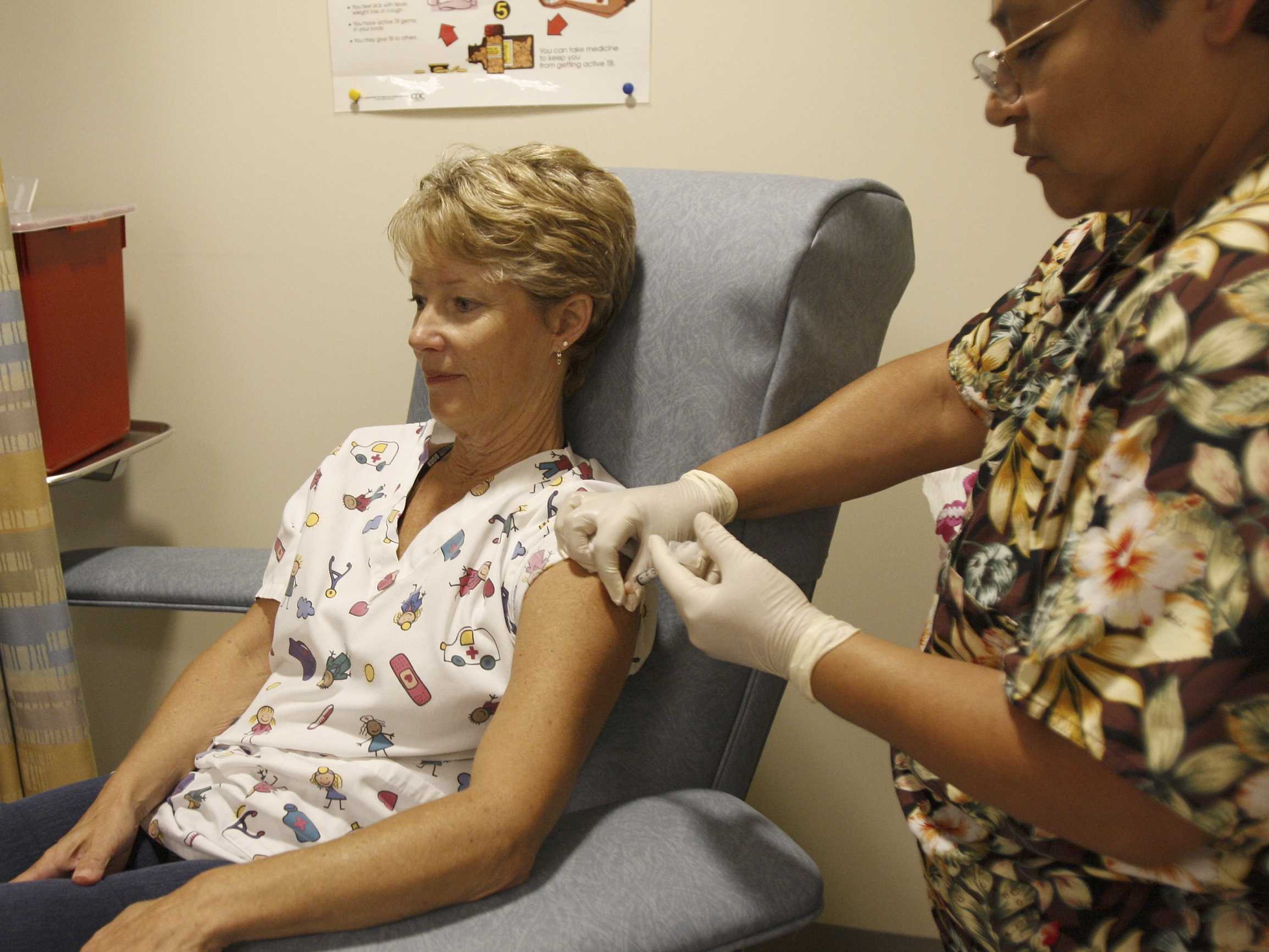 Bryan Koci / Staff Photographer
Bryan Koci / Staff PhotographerSan Diego State students looking for added protection against the H1N1 flu virus can now find it on campus.
H1N1 flu vaccinations are now available free of charge for students with a valid RedID. At this time, however, the number of available vaccines is dramatically less than originally planned.
“We initially ordered enough vaccine to cover all students, faculty and staff,” Dr. Gregg Lichtenstein, medical director of Student Health Services, said. “When it became evident that vaccine supplies were slow to be distributed, we were asked to lower our order for the first batch.”
SHS ended up ordering 5,000 doses of the vaccine. Its original order had been placed for 15,000.
“This is still a much higher number of doses than any other San Diego institution of higher education has received,” Lichtenstein said.
Despite the decrease, campus health officials are confident that more vaccines are on the way.
“As more vaccine becomes available, we will inform the campus community of an expansion of groups to whom we will vaccinate,” Lichtenstein said.
One question that has arisen among many people who are choosing to be vaccinated is whether or not it is safe to receive both the seasonal flu and H1N1 vaccinations together.
According to Lichtenstein, it is.
“Because of current vaccine availability, we would suggest seasonal flu vaccine for students with high-risk medical conditions and those in the health care field,” he said.
When deciding to get double vaccinated for both flu strains, there are precautions to follow that affect both safety and effectiveness.
“People should wait 14 days between doses of the nasal flu vaccine,” Lichtenstein said. “Injectable seasonal flu vaccines 8212; or a combination of one injectable and one nasal vaccine 8212; may be given on the same day.”
A small supply of the seasonal flu vaccine is still available at SHS. Unlike the H1N1 vaccine, which is free of charge, the seasonal flu shot costs $15.
The Center for Disease Control and Prevention has set up a comprehensive Web site to answer questions and provide updates on the national status of H1N1.
According to the site, there is a target group of the population that has been labeled high-risk, and has priority during these initial rounds of vaccination.
Members of the high-risk group include, “pregnant women, people who live with or care for children younger than 6 months of age, health care and emergency medical services personnel, persons between the ages of 6 months and 24 years old and people ages 25 through 64.”
Though the local and national media have been highlighting H1N1 for months, questions still remain about the importance of vaccinations and the possible side effects 8212; a fact many health care providers, as well as the CDC, would like to see cleared up.
According to the CDC, reactions to the H1N1 have mirrored those typically seen with the seasonal flu vaccine such as soreness, body aches, fever and nausea.
In rare cases, vaccinated individuals have developed Guillain-Barré syndrome, a disease in which a person’s immune system attacks its own nerve cells, sometimes causing muscle weakness and even paralysis.
Although there has not been a direct link established between any vaccine and the development of GBS, there was a believed correlation between H1N1 vaccines administered in 1976 and cases of GBS, according to the CDC.
There have already been multiple reported cases of possible GBS in the United States this month in connection with the H1N1 vaccine.
Despite apparent side effects both mild and serious, health care professionals maintain the importance of getting the H1N1 vaccine.
They say the preventative aspect of not becoming ill far outweighs the risks involved with getting the vaccine.
“Immunization is our best defense against influenza,” according to SHS.
To learn more about H1N1 and vaccinations, visit www.cdc.gov/h1n1flu. Appointments and information for SHS can be made by calling 619-594-4736 or visiting the Web site at www.shs.sdsu.edu.









